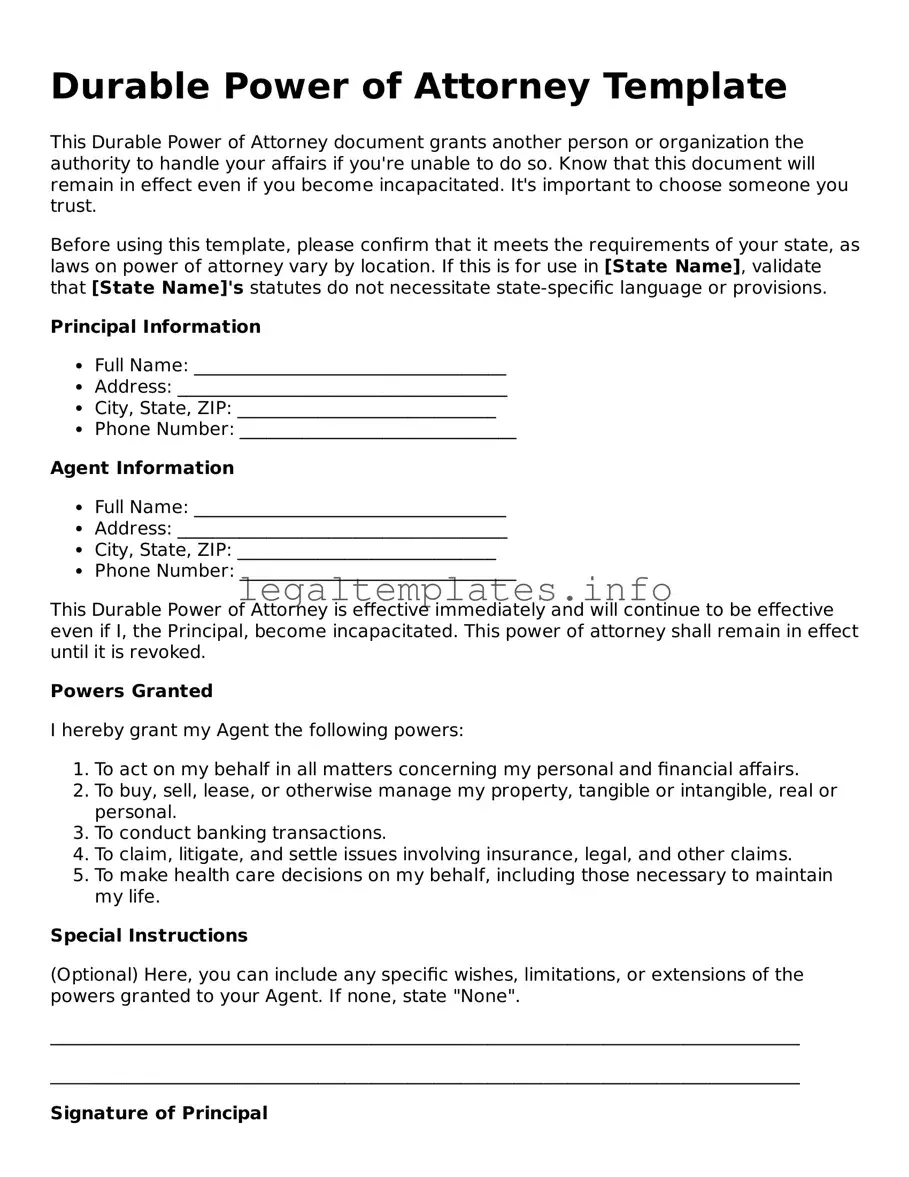Durable Power of Attorney Template
This Durable Power of Attorney document grants another person or organization the authority to handle your affairs if you're unable to do so. Know that this document will remain in effect even if you become incapacitated. It's important to choose someone you trust.
Before using this template, please confirm that it meets the requirements of your state, as laws on power of attorney vary by location. If this is for use in [State Name], validate that [State Name]'s statutes do not necessitate state-specific language or provisions.
Principal Information
- Full Name: ___________________________________
- Address: _____________________________________
- City, State, ZIP: _____________________________
- Phone Number: _______________________________
Agent Information
- Full Name: ___________________________________
- Address: _____________________________________
- City, State, ZIP: _____________________________
- Phone Number: _______________________________
This Durable Power of Attorney is effective immediately and will continue to be effective even if I, the Principal, become incapacitated. This power of attorney shall remain in effect until it is revoked.
Powers Granted
I hereby grant my Agent the following powers:
- To act on my behalf in all matters concerning my personal and financial affairs.
- To buy, sell, lease, or otherwise manage my property, tangible or intangible, real or personal.
- To conduct banking transactions.
- To claim, litigate, and settle issues involving insurance, legal, and other claims.
- To make health care decisions on my behalf, including those necessary to maintain my life.
Special Instructions
(Optional) Here, you can include any specific wishes, limitations, or extensions of the powers granted to your Agent. If none, state "None".
____________________________________________________________________________________
____________________________________________________________________________________
Signature of Principal
_____________________________________ Date: ________________
Signature of Agent
_____________________________________ Date: ________________
Acknowledgment by Notary Public
This section is for the notary public to fill out, confirming that the principal and the agent signed the document freely and voluntarily for the purposes stated in it.
State of ________________________
County of _______________________
On ______________ (date), before me, ______________________ (name of notary), personally appeared ________________________, known to me (or satisfactorily proven) to be the person(s) whose name(s) is/are subscribed to the within instrument and acknowledged that he/she/they executed the same for the purposes therein contained.
In witness whereof, I hereunto set my hand and official seal.
Notary's Signature: _____________________________ Seal:

